Selvom Japan ikke længere er den største økonomiske magt i Asien, fortsætter landet med at fascinere mennesker over hele verden. Japanstudier ved Aarhus Universitet undersøger aktuelle emner gennem et tværfagligt perspektiv, der trækker på historie, sociologi og statskundskab. Programmets sprogbaserede tilgang lægger stor vægt på japanske sprogfærdigheder, som er et vigtigt redskab til at engagere sig i og analysere disse discipliner i dybden. Et særligt kendetegn ved programmet er muligheden for at studere og opleve Japan på første hånd gennem et af vores mange partneruniversiteter over hele landet.
Japanstudier ved Aarhus Universitet giver de studerende vigtige færdigheder, der går langt ud over sprog og kulturel forståelse. Ud over at få en dyb indsigt i det japanske samfund udvikler de studerende stærke analytiske og kommunikative færdigheder, der er højt værdsatte i både den offentlige og private sektor, både inden for og uden for japanstudier.
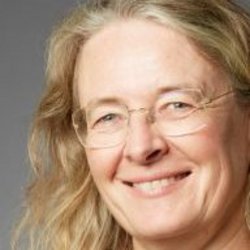
Academic Background:
I have a Master of Arts in Japanese History from Columbia University, an ABD in International Education Development from Teachers College, Columbia University, and a PhD in Japanese History from University of Copenhagen.
My research in a nutshell:
Working at the United Nations and the Frederick Douglass Academy in New York led me to ask research questions from the vantage point of Japanese history, but with an increasingly global scope. F.ex. ‘Why monolingual dictionaries for all of Japan anno 1879 required a simplification of visions for a Japanese National Language?’ and ‘Why and how Japanese Official Development Assistance is also a global cultural history about expansive networks of private sector employees in countries in Africa, Asia, Europe, and South America?.’ Currently, I am leading a transdisciplinary research project with Danish and Ghanaian researchers, who investigate and discuss the impact of the implementation of a master plan for transport in Ghana – originally prepared by the Japanese International Cooperation Agency (JICA) in 2014.
What is your favorite dish from Japan and why?
My favorite Japanese dish is Okonomiyaki with mochi, because I enjoy sitting around tables preparing and eating the dish with colleagues and friends in Japan. I particularly like that it is served with Japanese mayonnaise. As a mayonnaise connoisseur, I appreciate the distinctive features of this egg and oil composition in many different parts of the world.
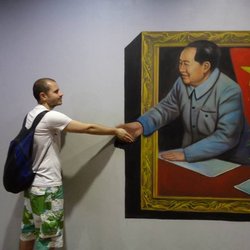
Academic Background:
I have a BA in Chinese Studies with a minor in Japan Studies and an MA in Global area studies (focusing on China) and Japan Studies. Both are from Aarhus University.
My research in a nutshell:
Given my educational background, I am highly interested in the relationship between Japan and China. I’m currently investigating how Japanese NGOs that engage in multi-track diplomacy fit into the larger framework of Japan-China diplomacy. We usually think of diplomacy as government representatives meeting each other, but non-government actors – such as academics, business leaders, NGO representatives etc. – are increasingly participating in diplomacy and helping to shape bilateral relations. I think it is important to know more about who these actors are, how they are connected to each other and to various government actors, what their goals and motivations are and so on.
What is your favorite book?
One book that I keep coming back to is Zhuangzi, a key text of Daoism and one of the great works of Chinese philosophy. Working in academia, it is easy to get stuck in conceptual thinking and theories meant to explain various phenomena. I find that Zhuangzi’s investigations into the limits of knowledge, along with its gentle mockery of the human tendency to divide up the world and put the parts into categories, is a great antidote to this.
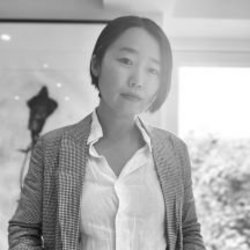
Academic Background:
I have an unconventional background as an academic. I trained in global and transnational histories of philosophy, science, and art through a DPhil in Global History at the University of Oxford (2016-2021) and a BA in History of Art at Goldsmiths, University of London (2005-2008). In between these two degrees, I worked as a contemporary art curator, writer, and manager specializing in cross-disciplinary projects. I ran my own program in London through a multi-year curatorial fellowship funded by Japan's Agency for Cultural Affairs. As a young person, I was also involved in activism against social and environmental injustices. My current academic work is informed by the knowledge and practice I gained from various environments both within and beyond the university setting.
My research in a nutshell:
My work examines how scientist-polymaths in modern Japan drew on diverse forms of knowledge from both Asian and European lineages and created interdisciplinary paradigms that recognize the inseparable connections between humans and nature. These individuals lived during a time of extraordinary social and environmental change driven by competing visions of "civilizational progress." However, the dominant idea of "progress" often resulted in increased inequality, racism, and degradation of ecological habitats. The language and methods of producing disciplinary knowledge at modern universities typically emerged within this paradigm. I shed light on the underlying logic of the polymaths' thoughts and actions, which challenged the boundaries and assumed conventions of this knowledge system.
If you would not be a researcher, what do you think would be your profession today and why?
A farm-to-table chef. From maintaining a kitchen garden to learning basic carpentry skills, I love getting my hands dirty to create something precious that can be shared. Cooking is where art, science, and ecology intersect in such a process. My current profession allows me to bring these branches of knowledge together in the form of theoretical reasoning based on concrete evidence. Cooking also elevates this through the tacit conversation of our five senses. While I may remain a historian, I would be excited to collaborate with a like-minded cook to bring these comparable approaches from two different professions together one day!
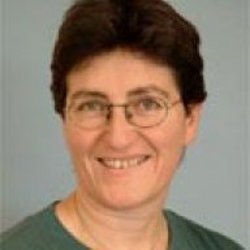
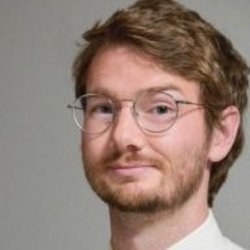
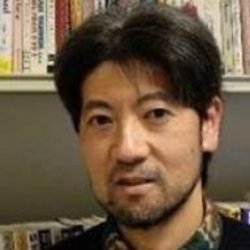
Academic background:
I received a Master’s degree in intercultural communication at San Francisco State University in the States. For many years I have taught business communication and intercultural communication at universities as well as companies in Japan. I have also held workshops on intercultural communication both in Germany and France. Currently, I teach Japanese language from the socio-cultural perspective. It’s been 8 years since I started working at AU.
My research in a nutshell:
My research focuses on intercultural communication, intercultural adaptation in particular. Recently, I have been researching how volunteer work experience at the Japanese supplementary school influences the Danish university students’ intercultural adaptation.
If you would not be a researcher, what do you think would be your profession today and why?
Broadway musical dancer, definitely!! After retirement, an owner of café with live classical music performance.
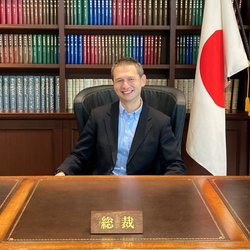
Academic Background:
I am a trained Japanologist with a special focus on political science. I have received both my Master’s and PhD degrees from the University of Hamburg in Germany. For many years, I lived in Japan, where I conducted research and taught at the University of Osaka. Currently, I am an Associate Professor at Aarhus University, where I have been employed since 2018.
My research in a nutshell:
My research interests primarily focus on Japan’s postwar foreign policy. As a country constrained by its pacifist constitution, Japan relies heavily on non-military instruments—particularly Official Development Assistance (ODA)—to pursue its economic and security interests. ODA has therefore been a central theme in my research.
As a scholar firmly rooted in the area studies tradition, I believe that foreign policy decisions cannot be understood in isolation from domestic political dynamics. Consequently, I also maintain a strong interest in Japanese domestic politics, which continues to undergo significant transformations.
What is your favorite place in Japan and why?
When people think of Japan, bustling cities like Tokyo or Kyoto often come to mind. However, Japan has so much more to offer beyond its urban centers. Personally, I prefer exploring the rural parts of the country—especially the island of Shikoku.
Shikoku is where the revered Buddhist monk Kūkai (also known as Kōbō Daishi) spent a significant part of his life in the 9th century. Given the island’s remoteness and its breathtakingly diverse landscapes, it’s no surprise that this region played a key role in his path toward enlightenment.
Life in Shikoku’s small villages moves at its own pace, offering a striking contrast to the fast-paced rhythm of Japan’s major cities. For me, Shikoku is a place of refuge - a place where I can reconnect with myself.